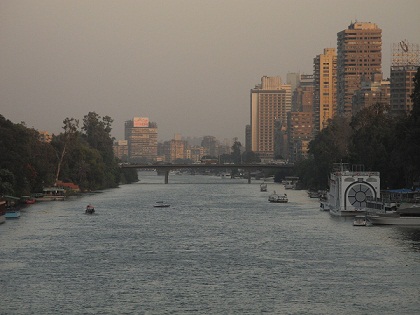A high-level delegation headed by Minister of Water Resources and Irrigation Mohamed Abdel Aaty arrived in Uganda to attend the first sessions of an emergency meeting for the Nile Basin Ministers Council of Water Affairs—started on Monday—to discuss disputes of Nile basin countries regarding the Cooperative Framework Agreement, more commonly known as the “Entebbe” agreement.
This meeting came as a continuance of a ministerial meeting held last week in the Sudanese capital of Khartoum, which was attended by the water ministers of Uganda, Sudan, Egypt, and Rwanda, as well as representatives from Kenya and Ethiopia.
In an attempt to reach satisfying results, Uganda’s meeting is scheduled to discuss the controversial terms of the agreement rejected by Egypt and Sudan. It will also discuss Egypt and Sudan returning to participate in their activities, which have been suspended since 2010.
The attendees of the Uganda meeting will also follow up on the results of Khartoum meetings.
Two options will be suggested during the meeting, including resolving disputes of Egypt and Sudan with other Nile Basin countries and postponing solving the issue until a presidential summit for the Nile Basin countries that is scheduled to take place in June.
During the presidential summit, results of Uganda’s meetings will be presented, as well as the agreement’s points of contention, so that they can be resolved in the attendance of the leaders of the ten countries.
The preparation of the presidential summit will be discussed in the Uganda meeting. It was called for by Ugandan president Yoweri Museveni.
In February 2011, all the Nile basin countries signed the agreement, except Egypt and Sudan, as they were not satisfied with all the terms of the agreement.
Countries that signed the agreement included Uganda, Kenya, Tanzania, Ethiopia, Rwanda, South Sudan, and Burundi. The agreement would increase the share of Nile water for these countries at the expense of downstream countries. Egypt did not sign the agreement, as Mohamed Bahaa El-Din, the minister of water resources and irrigation at that time, said that it was “not suitable for downstream countries” and was “against the interests of Egypt and Sudan.”
Egypt and Sudan are committed to their rejection in order to affirm the historical rights of the two downstream states in the waters of the Nile.
Studies were conducted to clarify that Egypt’s water resources will be affected negatively upon the completion of the project. Diplomatic relations between Egypt and Ethiopia were strained due to statements released by both parties.
Negotiations over Egypt’s returning to the Nile Basin Initiative started two years ago, following suspension of its membership in 2010, which resulted because of disputes over the agreement.
Throughout the past two years, the Nile basin countries met regularly to deal with Egypt’s major concern regarding its annual share of the water after the construction of the Grand Ethiopian Renaissance Dam (GERD).


